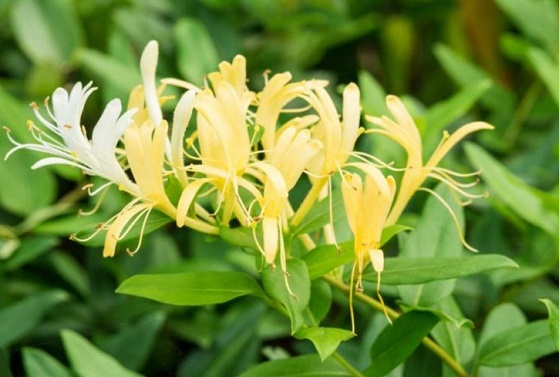The Phytochemical Chlorogenic Acid Found to Exhibit Antiviral Properties Against Flu Viruses Including H3N2
Nikhil Prasad Fact checked by:Thailand Medical News Team Nov 15, 2025 3 months, 1 week, 2 days, 23 hours, 55 minutes ago
Medical News: A Natural Compound Shows Powerful Anti-Flu Activity
A past scientific investigation has revealed that chlorogenic acid, a natural plant-based compound found in herbal plants such as Lonicera japonica (Japanese Honeysuckle), has strong antiviral effects against dangerous influenza viruses. The research was carried out by scientists from the State Key Laboratory of New-tech for Chinese Medicine Pharmaceutical Process at Jiangsu Kanion Pharmaceutical Co Ltd in China. Their goal was to understand how this common phytochemical can slow down or block flu virus activity, including strains that are known to resist common antiviral drugs. According to findings highlighted in this
Medical News report, the compound showed promise not only in laboratory cell tests but also in animal studies, giving researchers hope that it may serve as the basis for future treatments.
 The phytochemical Chlorogenic Acid from the herbal plant Lonicera Japonica (Japanese Honeysuckle),
The phytochemical Chlorogenic Acid from the herbal plant Lonicera Japonica (Japanese Honeysuckle),
found to exhibit antiviral properties against H3N2
How Chlorogenic Acid Attacks the Virus
The study revealed that chlorogenic acid works by interfering with a key protein called neuraminidase. This protein helps flu viruses break free from infected cells and spread throughout the body. When neuraminidase is blocked, new virus particles cannot escape as easily, limiting the infection. Laboratory tests showed that chlorogenic acid was able to slow down both H1N1 and H3N2 viral activity, even at relatively low concentrations. It also weakened the virus inside infected cells by reducing the production of a viral protein known as NP, which is essential for the virus to replicate. These actions combined to make the compound particularly effective in stopping the virus at later stages of its life cycle.
Animal Studies Show Survival Benefits
Researchers also tested the compound in mice infected with severe strains of influenza. Animals that received chlorogenic acid through intravenous injection showed significantly better survival rates compared to untreated ones. The highest dose protected 60 percent of mice infected with H1N1 and 50 percent for those infected with H3N2.
It also reduced virus levels in the lungs and prevented severe inflammation. Mice that received the treatment had milder lung damage, lower levels of harmful cytokines such as IL-6 and TNF-α, and regained weight faster, showing that the compound not only stopped the virus but also helped the body recover.
Why These Findings Matter
Current flu treatments face challenges because some viruses have developed resistance to drugs such as oseltamivir. Chlorogenic acid demonstrated effectiveness even against drug-resistant strains, which means it may serve as a valuable starting point for new antiviral medicines. The fact that it is a natural compound found in several medicinal plants also makes it attractive for further development. More research will be needed, particularly in human trials, but the results so far are encouraging and point toward a promising f
uture option for flu prevention and treatment.
The study findings were published in the peer reviewed journal: Scientific Reports
https://www.nature.com/articles/srep45723
For the latest on Herbs and Phytochemicals, keep on logging to Thailand
Medical News.
Read Also:
https://www.thailandmedical.news/news/breaking-new-mutant-h3n2-flu-virus-strain-with-7-genetic-changes-could-unleash-deadliest-global-flu-wave-in-decades
https://www.thailandmedical.news/news/new-hope-emerges-as-natural-herb-compound-shows-potential-against-influenza-h3n2
https://www.thailandmedical.news/articles/influenza-or-flu
https://www.thailandmedical.news/articles/h5n1-avian-flu
